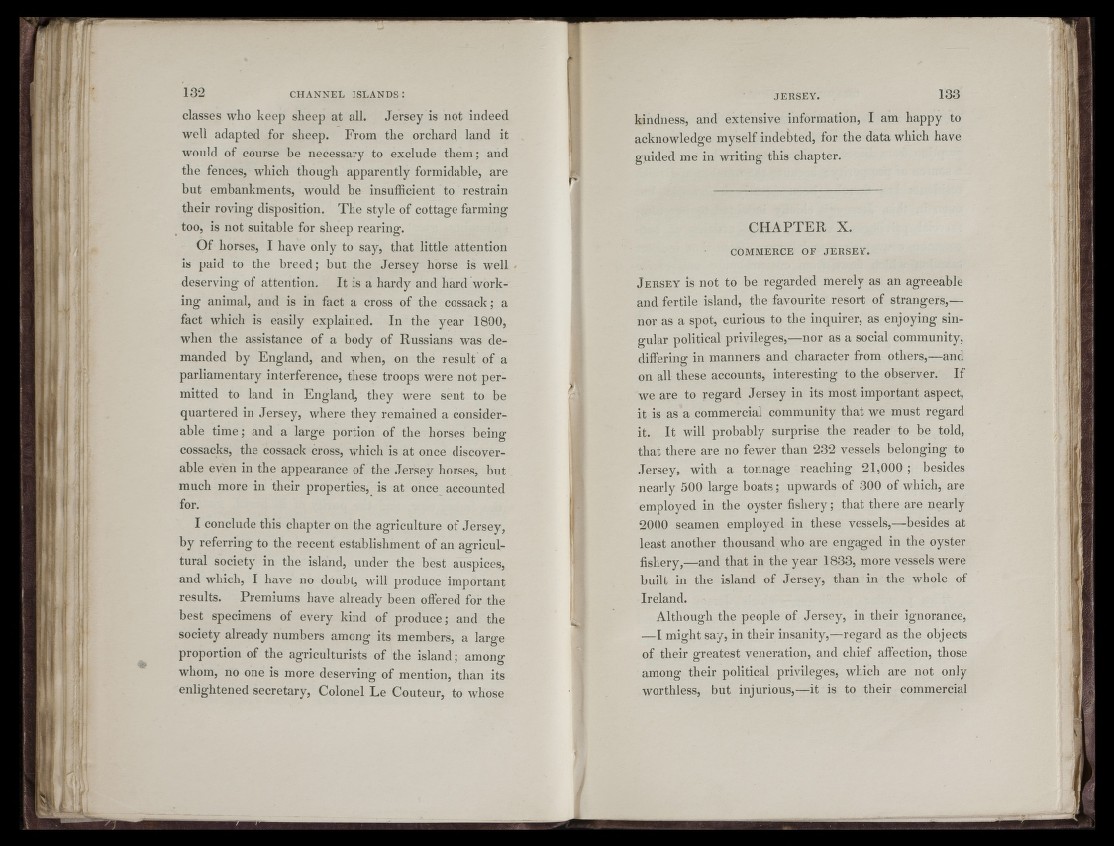
r •
I *
classes wlio keep sheep at all. Jersey is not indeed
well adapted for sheep. From the orchard land it
would of course be necessary to exclude them; and
the fences, which though apparently formidable, are
but embankments, would be insufficient to restrain
their roving disposition. The style of cottage farming
too, is not suitable for sheep rearing.
Of horses, I have only to say, that little attention
is paid to the breed; but the Jersey horse is well
deserving of attention. It is a hardy and hard working
animal, and is in fact a cross of the cossack; a
fact which is easily explained. In the year 1800,
when the assistance of a body of Russians vras demanded
by England, and when, on the result of a
parliamentary interference, these troops were not permitted
to land in England, they were sent to be
quartered in Jersey, where they remained a considerable
time; and a large portion of the horses being
cossacks, the cossack cross, which is at once discoverable
even in the appearance of the Jersey horses, but
much more in their properties, is at once accounted
for.
I conclude this chapter on the agriculture of Jersey,
by referring to the recent establishment of an agricultural
society in the island, under the best auspices,
and which, I have no doubt, will produce important
results. Premiums have already been offered for the
best specimens of every kind of produce; and the
society already numbers among its members, a large
proportion of the agriculturists of the island; among
whom, no one is more deserving of mention, than its
enlightened secretary. Colonel Le Couteur, to whose
r
kindness, and extensive information, I am happy to
acknowledge myself indebted, for the data which have
guided me in writing this chapter.
CH A PT ER X.
COMMERCE OF JERSEY.
J e r s e y is not to be regarded merely as an agreeable
and fertile island, the favourite resort of strangers,—
nor as a spot, curious to the inquirer, as enjoying singular
political privileges,—nor as a social community,
differing in manners and character from others,—and
on all these accounts, interesting to the observer. I f
we are to regard Jersey in its most important aspect,
it is as a commercial community that we must regard
it. It will probably surprise the reader to be told,
that there are no fewer than 232 vessels belonging to
Jersey, with a tonnage reaching 21,000 ; besides
nearly 500 large boats ; upwards of 300 of which, are
employed in the oyster fishery; that there are nearly
2000 seamen employed in these vessels,—besides at
least another thousand who are engaged in the oyster
fishery,—and that in the year 1833, more vessels were
built in the island of Jersey, than in the whole of
Ireland.
Although the people of Jersey, in their ignorance,
—I might say, in their insanity,—regard as the objects
of their greatest veneration, and chief affection, those
among their political privileges, which are not only
worthless, but injurious,—it is to their commercial
f
1P • iSsi
Î*! : !
r